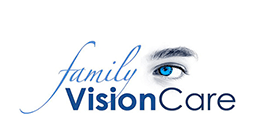
Spring is in the air! The warm weather, blossoming flowers and smell of freshly cut grass is a welcome relief for anyone who’s ready to put winter behind them. Walks in the park. Barbecues. Playgrounds full of children.
Despite all the spring excitement, it's important to know that the change in weather can affect your eyes in more ways than one — from prolonged UV exposure and a heightened risk of eye injuries to dry eyes and allergies.
Here are 5 practical ways to protect your eyes this season:
1. Wear Sunglasses with 100% UV Protection
UV protection isn’t only essential for your skin, but also for your eyes.
Prolonged unprotected exposure to the sun’s strong UVA and UVB rays can cause ‘eye sunburn’ (photokeratitis), and UV exposure over months or years can put you at risk of developing sight-threatening eye diseases in the future.
Which is why sunglasses are more than just a fashion accessory. When shopping for sunglasses, look for the label that says ‘100% UV protection.’ This way, you can enjoy the sun without a second thought for your eyes.
And if you believe sunglasses are only meant for sunny days, think again. The sun’s UV rays are so powerful that they penetrate through the clouds and reflect off of water, snow, ice, concrete and many other surfaces.
So before you head out the door, be sure to grab a pair of shades. For even greater protection, also wear a cap or wide-brimmed hat.
2. Drink Plenty of Water
Drinking water — especially on a hot day— is important not only for your overall health, but the health of your eyes. If your body becomes dehydrated your eyes will too, which can lead to symptoms of dry eye and other complications.
Many doctors recommend drinking six 8-ounce glasses of water each day, and more if you’re playing sports or spending lots of time in the sun. So keep a bottle of water close by and drink, drink, drink!
3. Hydrate Your Eyes
Sometimes, drinking water isn’t enough to keep dry eye symptoms at bay.
If your eyes are dry, irritated, itchy or bloodshot, you may have dry eye syndrome. Dry air and wind, air-conditioning and heating systems, certain medications and medical conditions can all cause dry eyes.
Call Family Vision Care in Mt Pleasant to schedule a dry eye assessment and learn about your treatment options.
4. Wear Protective Eyewear
The beautiful spring weather calls for outdoor sports, bonfires, barbeques — and in some places, fireworks. Although these activities may be fun, they also pose a risk to your eye health and vision.
To protect your eyes from injury and exposure to extreme heat and smoke, make sure to wear protective eyewear like sports goggles or specialized glasses with polycarbonate lenses.
Most eye injuries can be prevented with the right kind of eye protection.
5. Seek Allergy Relief
Does the mere thought of springtime make your eyes tear and your nose run? You’re not alone. Seasonal allergies are common, and can be frustrating, especially when you’ve been looking forward to spending more time outdoors.
If you suffer from eye allergies, even a morning jog around the block can have you rubbing your eyes for the rest of the day.
Fortunately, there are ways to effectively treat eye allergies and make irritated, itchy eyes a thing of the past.
Contact Family Vision Care in Mt Pleasant to learn about the different dry eye and allergy treatments we offer, or to choose eyewear that protects your eyes from sun exposure and injury. We’re here to help you protect your eyes this spring and always.
Q: What is Dry Eye syndrome?
A: Dry eye syndrome (DES) is a chronic condition that occurs when your eyes don’t produce enough tears, or there is insufficient oil in your tears.
Some of the most common causes of DES include:
- Environmental factors - living in a dry, dusty or windy climate
- Hormonal changes - especially during pregnancy and menopause
- Certain medications - antihistamines, blood pressure medications and antidepressants, among others
- Eyelid conditions - like meibomian gland dysfunction and blepharitis
- Post-LASIK surgery
Symptoms can be mild or severe and cause your eyes to feel dry, sore, itchy, and watery. Treatment for DES varies, depending on the underlying cause, but can range anywhere from medicated eye drops and ointments to in-office procedures.
Q: How are eye allergies treated?
A: The most effective way to treat your eye allergies is to first find out what’s causing them.
Eye allergies can be triggered by:
- Airborne substances found in nature such as pollen from flowers, grass and trees
- Indoor allergens such as pet dander, dust and mold
- Irritants such as cosmetics, chemicals, cigarette smoke and perfume
To alleviate your symptoms, your eye doctor may recommend OTC lubricating eye drops, medicated eye drops that replace the oil in your tears, or eye drops (or oral medications) that contain an antihistamine.
If these eye drops don’t provide enough relief, your eye doctor can discuss a range of in-office treatments or prescribe a stronger medication to provide long-lasting relief for your allergic eyes.
Quality Frames For Prescription Eyeglasses & Computer Glasses. Visit Family Vision Care for an eye exam and eyeglasses that match your style.
